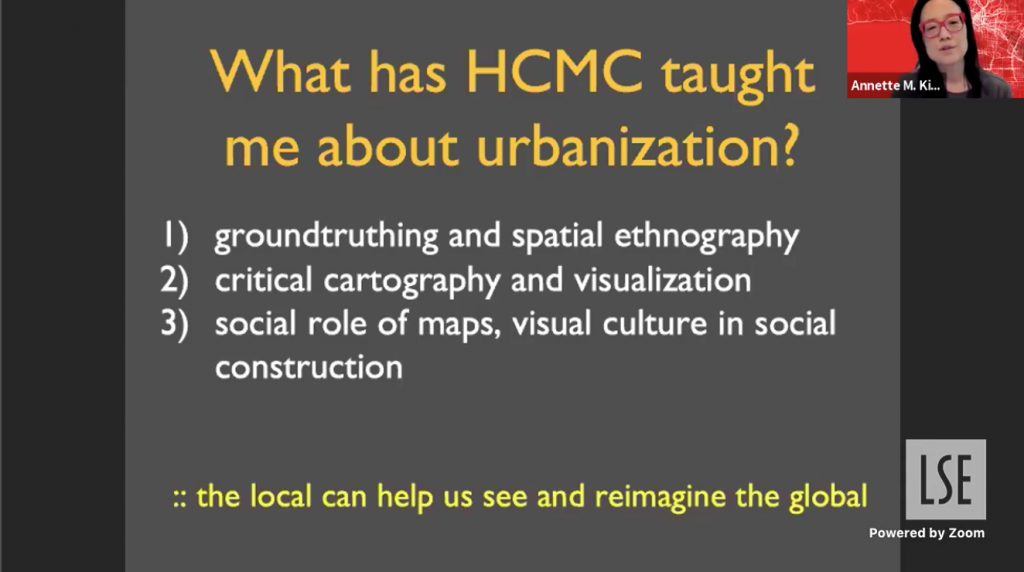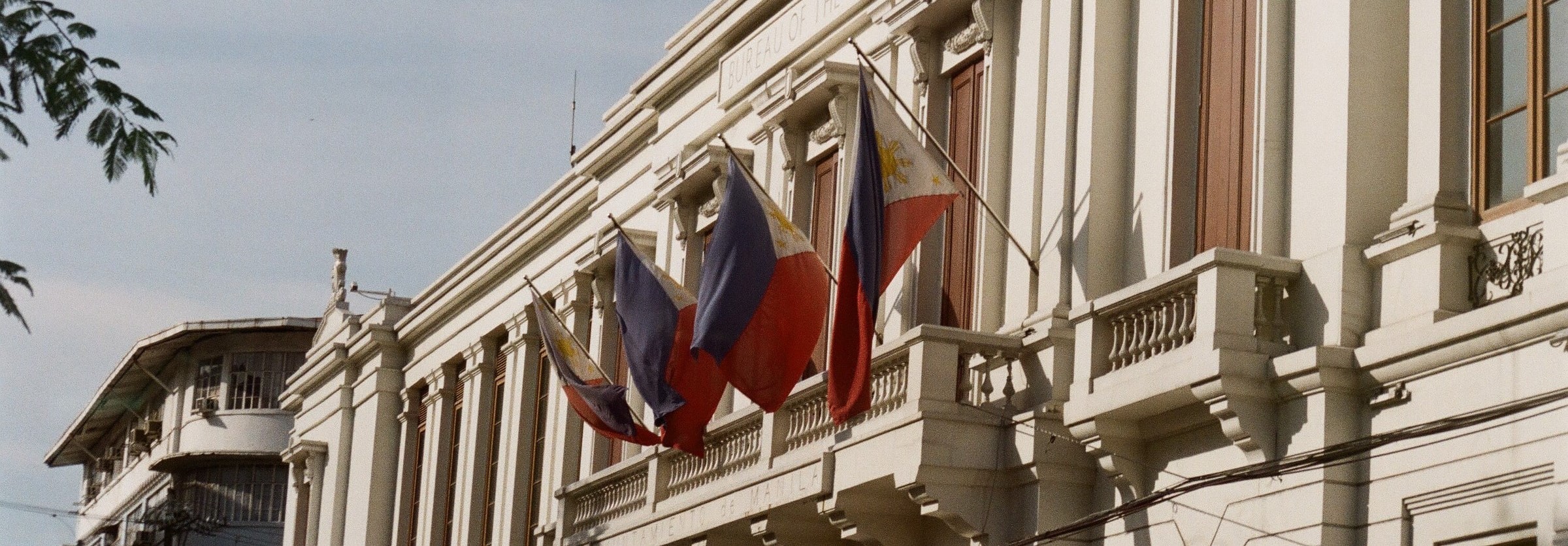On Wednesday, 7th October 2020, Dr Annette Kim presented a talk entitled “Mapping Transdisciplinary Data for Spatial Justice: Migration and Urbanisation in Vietnam and Beyond” as a part of the LSE Southeast Asia Centre’s Seminar Series. Suzy Jung, a doctoral candidate at the Edward.J. Bloustein School of Planning and Public Policy at Rutgers, the State University of New Jersey, United States, reflects on this seminar
_______________________________________________

How can urban planning scholars contribute to giving a voice to the invisible, the marginalised, and the unobserved space, people, and activities in Southeast Asian cities? By recognising planning issues of the spatial marginalization in cities around the world, Dr Annette Kim introduces spatial ethnographic research as a powerful mode to visualise the unobserved or even underrated local livelihood of the cities. Dr Kim addresses the key importance of utilising visual, spatial, and digital technology for spatial justice in the making of inclusive cities.
Dr Kim’s talk explores academic and professional inquiries: First, how are we, as urban planning scholars, make use of digital platforms and technology to give a voice to the hidden, silenced, and informal spatial information? Second, how can we reimagine the global by recognising the cultural values of the locality? And, last and most importantly, can we better translate the data in holistic, collaborative, and synergic ways, for example, by inviting the expertise of visual artists, planners, ethnographers, landscape architects, social scientists, and data scientists?
As one of the critical, strategic, and tactical planning responses, Dr Kim introduces “spatial ethnography.” Spatial ethnography interweaves three different fields of studies – spatial planning, visual art, and ethnography. Her projects unfold a story of how spatial ethnography systematically collects, visualises, and communicates the informal, off-the-map, and underground spatial information.
More specifically, her international fieldwork research projects illustrate how spatial ethnography can be used to inform the public in the real-world setting: by photographing underground residents in Beijing, China; by mapping ethnic diversity depicted in signboards in Los Angeles, U.S.; and, by modelling street vendors’ space-sharing of the sidewalk in Ho Chi Minh City, Vietnam. Her projects reconcile a disconnection between informal city-making and formal planning practices; actual realities and ideal planning visions; local cultural diversity and master narratives of global cultural hegemony. Her findings suggest that spatial ethnography is not only scholarly experimentation about the methodological possibility, but also power-laden planning practices through which the spatial information shapes the formal, official, and public decision-making process.
Her pragmatic approach leads to a further discovery of the grounded truth embedded in the locality. By employing an integral application of techniques from transdisciplinary perspectives, Dr Kim’s talk offers an invaluable lesson to be learned: planning professionals are no longer a mere technician or an expert detached from muddy realities; but a creative social reconstructionist who participates in, acts upon and engages with the transformative planning process in Southeast Asian cities.
* The views expressed in the blog are those of the authors alone. They do not reflect the position of the Saw Swee Hock Southeast Asia Centre, nor that of the London School of Economics and Political Science.
* This post is based on Dr Annette Kim’s talk delivered on Wednesday, 7th October 2020 as a part of the SEAC Seminar Series. You can access the recording here.
* Dr Annette Kim has also authored a book titled “Sidewalk City: Remapping Public Space In Ho Chi Minh City”





